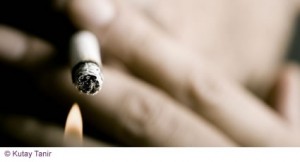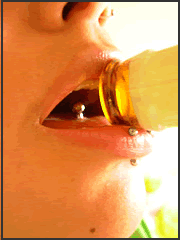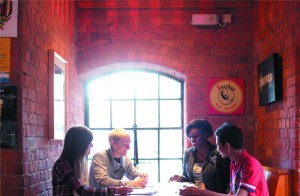
istockphoto
Marijuana is the most prevalent illicit drug used by teenagers and adults around the world. Nearly a third of high school students in the United States report smoking it, and most high schoolers say they have access to the drug.
To many people, smoking pot is no big deal. They cite reasons such as: “it isn’t dangerous or addictive” and “everybody is doing it.”
Denise Walker, co-director of the University of Washington’s Innovative Programs Research Group, disagrees.
“It’s not a risk-free drug,” she said. “Lots of people who use it do so without problems. But there are others who use it regularly – almost daily – and want to stop but aren’t sure how.” [continue reading…]
Published: April 26, 2011
 Researchers at Queens University have found a strong association between computer and Internet use in adolescents and engagement in multiple-risk behaviours (MRB), including illicit drug use, drunkenness and unprotected sex.
Researchers at Queens University have found a strong association between computer and Internet use in adolescents and engagement in multiple-risk behaviours (MRB), including illicit drug use, drunkenness and unprotected sex.
“This research is based on social cognitive theory, which suggests that seeing people engaged in a behaviour is a way of learning that behaviour,” explains lead researcher Valerie Carson, a doctoral candidate in School of Kinesiology and Health Studies. “Since adolescents are exposed to considerable screen time—over 4.5 hours on average each day—they’re constantly seeing images of behaviours they can then potentially adopt.”
The researchers found that high computer use was associated with approximately 50 per cent increased engagement with a cluster of six MRB, including smoking, drunkenness, non-use of seatbelts, cannabis and illicit drug use, and unprotected sex. High television use was also associated with a modestly increased engagement in these MRB. [continue reading…]

Image credit: iStock
Parents who are both present and engaged are the very best way of preventing teenagers from consuming large quantities of alcohol. Adolescents who smoke, stay out with their friends and have access to alcohol – from their parents, for example – when they are as young as 13 are at greater risk of becoming binge drinkers in their late teens, reveals a new thesis from Karolinska Institutet in Sweden.
“Initiatives that focus on strengthening the parent-child relationship and limiting parental provision of alcohol can prove effective in limiting risky consumption among adolescents,” says Anna-Karin Danielsson from the Department of Public Health Sciences. “Parents also play an important role when it comes to teaching young people how to resist peer pressure to drink.”
[continue reading…]

Credit: University of Nottingham
exuality and religion are generally considered uncomfortable bedfellows. Now, for the first time, a team of researchers from Nottingham have carried out a detailed study around these issues and how they affect and influence the lives of British 18 to 25 year olds.
Led by The University of Nottingham, in collaboration with Nottingham Trent University, experts spent two years investigating the attitudes, values and experiences of sex and religion among young adults.
The study, which involved nearly 700 young people from six different religious traditions; Buddhism, Christianity, Hinduism, Islam, Judaism and Sikhism as well as young adults of mixed-faith, highlights the challenges they face in reconciling their sexuality and their religion and the concerns they have about the stigmatisation of religion and the increasingly sexualised culture in British society today. [continue reading…]




